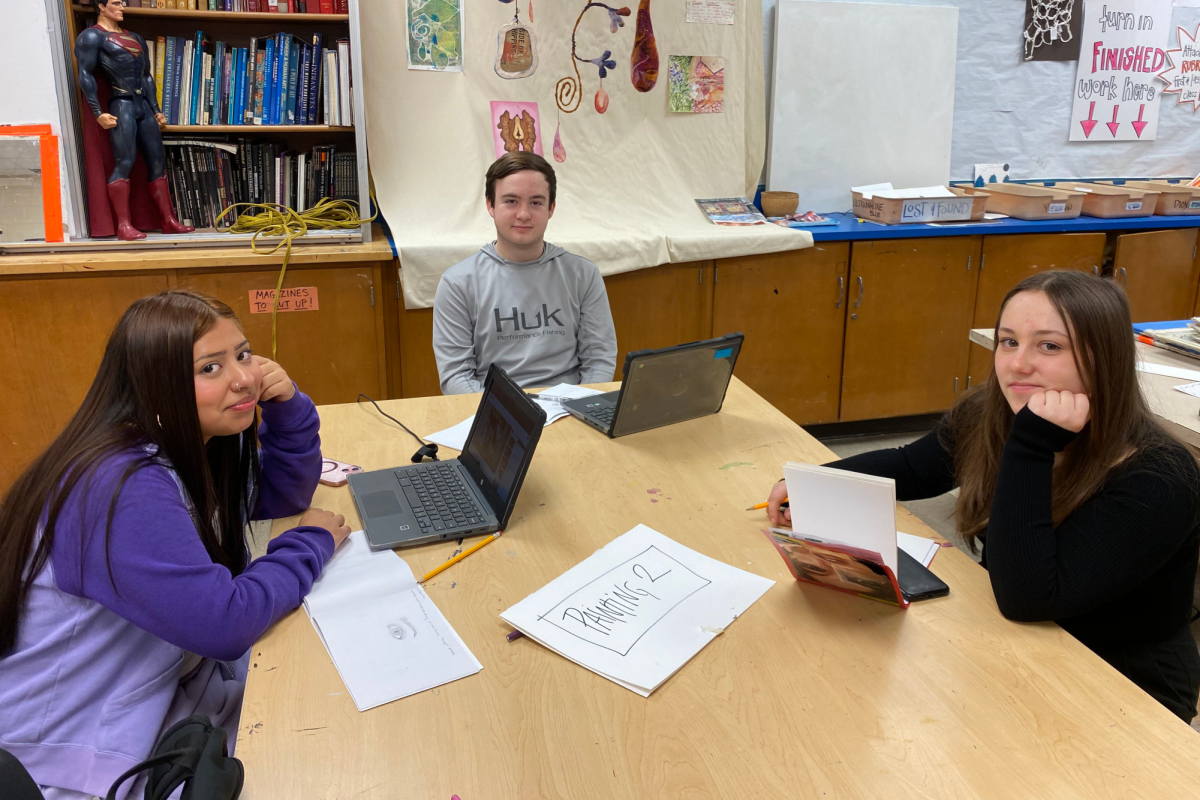Racial profiling noticed in the halls
February 6, 2014
Which students are asked for passes in the hallways at South? Does a student’s race help determine whether they are stopped? Conversations about racial profiling at South echo national issues, but the extent of racial profiling on students in the hallways of South is debatable.
Racial profiling is the suspicion of people based on race, ethnicity, religion or other unchangeable characteristics, rather than on evidence-based behavior. Racial profiling has been a growing issue in America over the years, and has been discussed even more after the much-publicized, racially motivated murder of Trayvon Martin in February, 2012.
Another example of racial profiling exists within law enforcement. The New York Police Department (NYPD) made headlines last year with their “stop and frisk” practice, which was critiqued as encouraging racial profiling, while invading the privacy of mostly innocent civilians. Statistics from NYPD reports show that nearly 9 out of 10 stopped-and-frisked New Yorkers have been innocent, and that the practice has not lowered crime rates.
Some South students report experiences of racial profiling at South. “They [hall monitors] stopped me in the hallway, and they were talking to me, and a white person walked right past me. Nothing was said to them… I think it’s [racial profiling] kind of there, but it’s not a strong presence,” explained freshman Abel Martinez.
Eamonn Casey feels that his white privilege may have an impact on whether he is stopped in the hallway. “I don’t know if it’s there to the extreme as some people make it sound, but it definitely is there.” stated Casey.
South Dean Keith Herman countered, “No, I don’t do that. And I don’t believe in [racial profiling]. There’s no racial profiling. We don’t profile our own folks… We have at least 20 staff outside at all times. Every time I see a kid, I don’t care if you’re pink, yellow or black, let me see a pass.”
Some students agree with Herman and don’t see that there is a racist environment at South.
“I don’t believe that there’s a lot [of racial profiling]. I feel like there was more in the past than there is now,” said senior Dakessa Hector. “Now I feel like the security have been more strict on everyone, and not really letting certain people slide as much, which I really appreciate, so it’s not like I’m the only one being targeted.”
Senior Isaiah Brown agreed that security has become more fair: “A lot of people that are involved with the school pretty much know who the security is, we know them, they know us and so I think it’s been better. At the beginning of the school year, not as much, but last couple of months have been pretty good.”
One example of racial profiling here in the Twin Cities is at the University of Minnesota. This academic year has seen a continued string of robberies and assaults on campus. As the school addresses safety concerns, the issue of racial profiling was raised by members of the African American community.
Groups have sent letters to university leaders and police, requesting that the race of suspects in crimes not be included in the notifications. According to students and faculty, this has resulted in police targeting people based on their race, rather than their behavior. The administration has since responded that they will continue to include race in suspect descriptions, but hope to remedy the situation.
On a smaller scale, this may be happening at South. But is race the main factor in getting stopped in the halls?
According to Casey, the likelihood of getting asked for a pass may depend more on behavior than on race. Mainly, how the student acts in the hall will make a monitor stop them, or let them pass unquestioned.
“Normally when I’m out in the hallways I have somewhere to be going, not just kinda meandering around and so, I tend to just at least make it look like I’m trying to get to class and they don’t stop me for that,” Casey explained. “Also, after 4 years here, I kind of know where the people are so I know how to avoid it.”
Freshman Selena Trevino agrees. “I don’t get stopped often, maybe because I don’t look suspicious, like I have somewhere to be, and that I have a pass,” she said.






